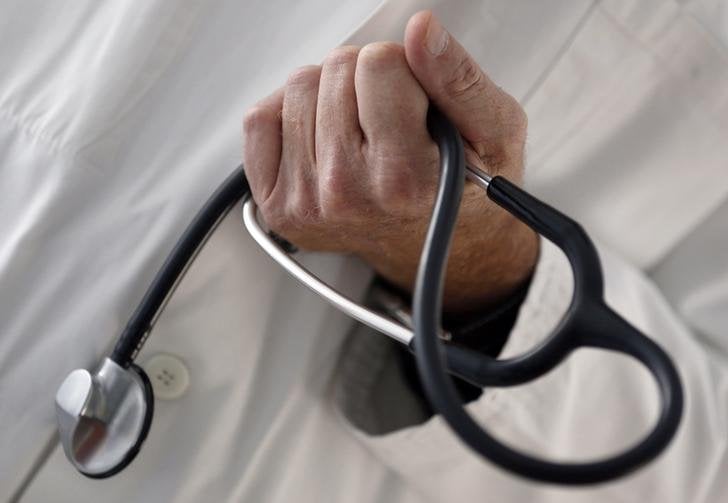
The Economic Coordination Committee (ECC) has directed the finance ministry to arrange the requisite funds to pay for the allowances.
Documents available with The Express Tribune show that the summary for the supplementary grant was presented in a meeting ECC by the health ministry on Monday.
The ministry sought a grant worth Rs430.83 million to provide better allowances to doctors serving at the Pakistan Institute of Medical Sciences (Pims). A further Rs260.65 million were sought for the doctors working at Federal Government Polyclinic hospital. A further Rs30.85 million were sought for doctors working at the National Institute of Rehabilitation and Medicine (NIRM).
The document stated that the grant was being sought as per directions issued by Prime Minister Imran Khan in August to provide doctors in the Islamabad Capital Territory (ICT) the same allowances as those received by doctors in neighbouring Punjab.
The health ministry had sent a summary to the prime minister suggesting an increase in healthcare allowance, health professional allowance, teaching allowance and non-practising allowance for doctors in Islamabad. The ministry proposed a measure for doctors, similar to nurses in federal hospitals, who received an increment in allowances recently.
The summary further proposed to give 75 per cent special healthcare allowance, 75 per cent health professional allowance, 75 per cent non- practising allowance and 75 per cent teaching allowance to basic pay scale (BPS) 17 and 18 doctors according to initial basic salary in 2018.
PM approved the summary on August 20.
Universal healthcare package
A national discourse for the development and implementation of universal healthcare (UHC) benefits package started in the federal capital on Monday. The discourse will review the localised scientific evidence for cost-effectiveness and burden of diseases in Pakistan and using the information to prioritise health interventions for essential health services.
The discourse is being held as part of a programme organised by the federal health ministry in partnership with the provincial and area health departments, Disease Control Priorities Secretariat at the London School of Hygiene and Tropical Medicine (LSHTM), the World Health Organisation (WHO) and other partners.
Addressing the inaugural session, Special Advisor to Prime Minister on Health Dr Zafar Mirza said that Pakistan is the first country in the world to use localised evidence on Disease Control Priorities 3 and Burden of Disease to develop an essential health services and UHC benefit package for the country.
Once implemented, he hoped that the package will help the country improve national health and make swift progress towards its ultimate goal of universal healthcare.
“There are inequities in access to healthcare in Pakistan along with insufficient implementation of long-term strategic planning for the health workforce,” stated DCP3 representative Dr Ala Alwan, adding that inadequate national capacity in key areas - such as public health and family medicine, inadequate access to essential technologies and medicines, a large, unexploited and unregulated private health sector and fragmented health information systems compounded issues.
“We are working with the government to address these gaps along with evidence-based strategic work for the development of an essential package of health services and inter-sectoral interventions,” she further said.
“Scientific tools are being used to produce a health package at different levels of healthcare delivery system in Pakistan,” LSHTM’s Professor Anna Vassal said.
“The government can optimise its health package by adjusting the total budget, financial risk protection and equity weight,” she said.
Published in The Express Tribune, November 26th, 2019.

1732071267-0/lana-(2)1732071267-0-165x106.webp)
1727242355-0/Diddy-(1)1727242355-0-165x106.webp)

1732063440-0/elon-(3)1732063440-0-165x106.webp)

1732080054-1/Copy-of-Untitled-(48)1732080054-1-270x192.webp)










COMMENTS
Comments are moderated and generally will be posted if they are on-topic and not abusive.
For more information, please see our Comments FAQ